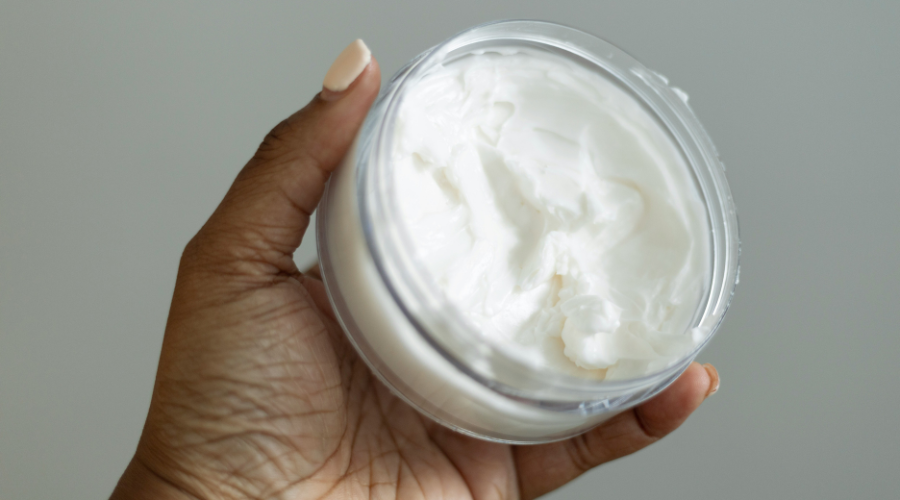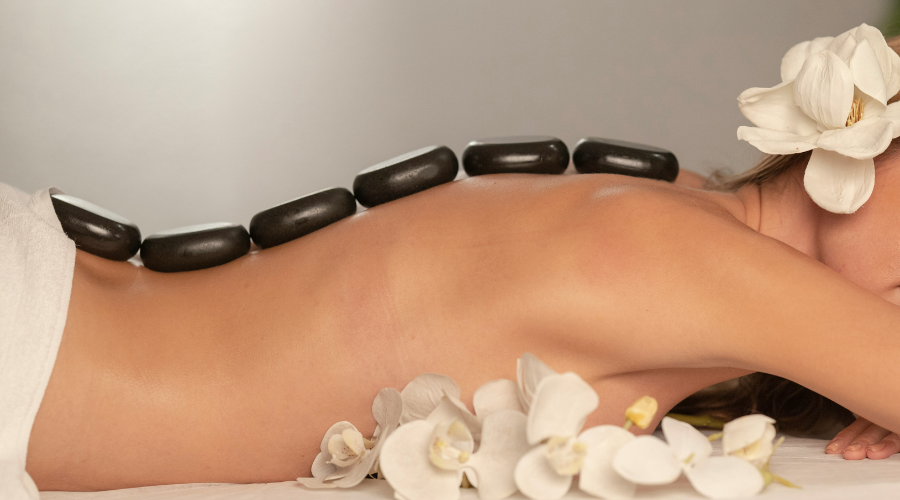Polycystic Ovary Syndrome (PCOS) and Hirsutism: Navigating Hair Growth with Support

You wake up one morning and notice more hair on your face and body than usual. The coarse, dark hairs seem to have appeared overnight, and you start to worry that something is wrong. This unwanted hair growth could be a symptom of polycystic ovary syndrome (PCOS), a common hormonal disorder that affects up to 15% of women.
If you've been diagnosed with PCOS, you know that one of the most distressing symptoms is hirsutism, or excess hair on the face, chest, back, or buttocks. Dealing with new hair growth can damage self-esteem and make you want to hide. But take heart - with the right treatment plan and support system, you can manage PCOS and handle the hair symptoms. This article provides tips for navigating hirsutism with compassionate understanding and evidence-based advice. You are not alone, and there are solutions to regain confidence in your appearance.
Understanding Hirsutism and Its Link to PCOS
What is Hirsutism?
Hirsutism refers to excess hair growth in women, especially in areas where men typically grow hair, such as the face, chest, and back. For many women, hirsutism is caused by polycystic ovary syndrome (PCOS), a hormonal imbalance that can lead to irregular periods, acne, and weight gain.
The Link Between PCOS and Hirsutism
If you have PCOS, your body may produce higher levels of androgens like testosterone. Androgens stimulate hair follicles, causing excess hair growth, especially on the face, chest, and back. Not all women with PCOS experience hirsutism, but many do. The good news is there are treatments that can help reduce excess hair and manage PCOS.
Myths and Facts About Hirsutism
Many myths surround hirsutism, including that it's due to poor hygiene or can be "cured" with laser hair removal. The truth is hirsutism is a medical condition requiring treatment to address the underlying cause. Laser hair removal only provides temporary hair reduction. The hair will continue to grow back without medical intervention.
The key to navigating hirsutism is understanding the link between excess hair growth and hormone levels. Speaking with your doctor about safe and effective treatment options, like birth control pills, anti-androgen medications, and lifestyle changes can help get your symptoms under control and give you confidence from the inside out. Though hirsutism may be difficult to discuss, you don't have to deal with it alone. Support from doctors, friends, and community can help you feel empowered on your journey.
Causes and Symptoms of Excess Hair Growth
Hormonal Imbalances
PCOS is linked to hormonal imbalances, like elevated androgens (male hormones), especially testosterone. Too much testosterone stimulates hair follicles, causing darker, coarser hair growth on the face, chest, stomach, and back. This is known as hirsutism and affects up to 70% of women with PCOS.
Insulin Resistance
Many women with PCOS also have insulin resistance, meaning their cells don't respond properly to the hormone insulin. This can increase androgen levels, which in turn boost hair growth. Losing weight and following an anti-inflammatory diet may help reduce insulin resistance and improve PCOS symptoms.
Irregular Menstrual Cycles
If you have PCOS, you may experience irregular or missed periods. Without ovulation, progesterone levels drop, while estrogen and androgens rise. This hormonal imbalance can stimulate excess hair growth, especially on the face and body. Birth control pills are often prescribed to regulate menstrual cycles and balance hormone levels.
Skin Problems
Acne, oily skin, skin tags, and dark patches on the neck can all occur with PCOS and hirsutism. Treatments like spironolactone pills, antibiotic creams, and isotretinoin may provide relief from these skin issues, which tend to flare up when androgen levels are high.
While the causes of excess hair growth may be complex, the good news is there are many treatment options available to help you feel more comfortable in your own skin. By working with your doctor to determine the underlying issues, you can find the right combination of medications and lifestyle changes to get your symptoms under control.

Treatments and Remedies to Manage Hirsutism
Topical Creams and Gels
There are several prescription creams and gels available to slow hair growth and reduce existing hair. A dermatologist can prescribe topical anti-androgen medications, such as eflornithine cream. You apply it directly to problem areas of hair growth twice a day. It works by blocking a natural substance in your body that stimulates hair growth. Another option is laser hair removal, which uses targeted light pulses to destroy the follicles, preventing regrowth. Multiple treatments are often needed, but laser hair removal can be a permanent solution for some women.
Oral Medications
For hirsutism related to PCOS, your doctor may prescribe oral medications to block androgen production or action. The most common drugs are spironolactone, which blocks the effects of androgens on the hair follicles, and metformin, which can help regulate hormone levels. Birth control pills may also be used to suppress ovulation and decrease androgen levels. It can take several months of treatment to see significant improvements in hair growth.
Lifestyle Changes
In addition to medical interventions, certain lifestyle changes may aid in controlling hirsutism. Losing excess weight, eating a balanced diet, reducing stress, and quitting smoking can all help regulate hormone levels and decrease hair growth. Spearmint tea, flax seeds, and saw palmetto supplements may have anti-androgenic effects for some women. Regular gentle hair removal methods, such as shaving, plucking, waxing or threading, can also reduce the appearance of excess hair when medical treatments take effect.
With patience and the right combination of treatments, hirsutism can be managed well. Don't lose hope - there are many resources and a strong support system to help you through this. By exploring various options with your doctor, you can find what works best for you and get the results you're looking for. Staying positive and focusing on self-care will aid you on your journey to greater confidence and wellbeing.
Creating a Self-Care Routine for Hair Removal
Dealing with excess hair growth can be frustrating and disheartening. But there are several things you can do to establish a self-care routine to manage hair removal and feel more in control of your body.
Find the Methods That Work for You
There are many options for hair removal, so explore different methods to find what you’re most comfortable with. Laser hair removal and electrolysis provide longer-lasting results but can be expensive. Waxing and depilatories remove hair for weeks at a time. Shaving is a quick fix but hair grows back within days. Try different options to see what fits your needs, budget, hair type, and skin sensitivity.
Exfoliate and Moisturize
Exfoliating removes dead skin cells and preps your skin for hair removal. Use a scrub, chemical exfoliant like glycolic acid, or facial brush 2-3 times a week. Moisturize daily, especially after hair removal. Soft skin and unclogged hair follicles allow for closer, more effective hair removal. Moisturizing also soothes skin and prevents ingrown hairs.
Take a Supplement
Some supplements may help reduce excess hair growth. Talk to your doctor about supplements like saw palmetto, spearmint tea, or inositol. They can block androgens, male sex hormones that stimulate hair growth. Supplements may provide gradual effects, so you’ll still want to continue other hair removal methods. But over time, you may notice slower hair regrowth and less dense hair.
Practice Self-Care
Managing PCOS hair growth can take an emotional toll. Make time for self-care. Exercise, journaling, yoga, and talk therapy can help reduce stress and boost confidence from the inside out. Connecting with others who share your experience provides empathy and support. Loving yourself as you are is a journey, so be gentle with yourself. With the right self-care and hair removal routine for you, excess hair will feel more manageable over time.

Finding Support for Hirsutism and PCOS
Talk to Your Doctor
Your doctor can be an invaluable source of support. Discuss treatment options for managing hirsutism like laser hair removal, electrolysis, or prescription creams. Ask about ways to regulate your menstrual cycle or improve insulin sensitivity. Don’t hesitate to ask questions or share your concerns—your doctor is there to help you.
Connect with Others
Speaking with others who have PCOS or hirsutism can help combat feelings of isolation. Look for online support groups, or start your own. Ask your doctor if they know of any local support groups you could join. Opening up to close friends or family members you trust can also help. Let them know how they can support you, whether it’s just by listening or going with you to appointments.
Practice Self-Care
Make sure to schedule in time for yourself to avoid burnout. Exercise, eat healthy, reduce stress, and engage in relaxing hobbies. While hirsutism and PCOS can impact self-esteem, focus on the qualities you like about yourself. You are so much more than a few unwanted hairs. Practice positive self-talk and be gentle with yourself.
Seek Counseling
Speaking to a therapist or counselor who specializes in body image concerns or chronic illness can help you develop coping strategies. They can also help address feelings of anxiety, depression, or low self-worth that often accompany hirsutism or PCOS. Ask your doctor for referrals or search online for counselors in your area.
With the right support system in place, hirsutism and PCOS become more manageable. Don’t be afraid to ask for help—you deserve support and compassion. Surround yourself with people who love and appreciate you for who you are. In time, you will come to accept yourself too.
So don't let the hair growth get you down. You've got this! With the right treatment plan and support system, you can tackle PCOS and any hirsutism symptoms that come with it. Talk to your doctor to get screened and diagnosed. Find a specialist you trust. Experiment with hair removal options and tweeze away! Lean on friends and family who build you up, not tear you down. And remember self-care - do things that make you feel confident, strong, and beautiful, hairy legs and all. PCOS doesn't define you. You've got this, girl!




